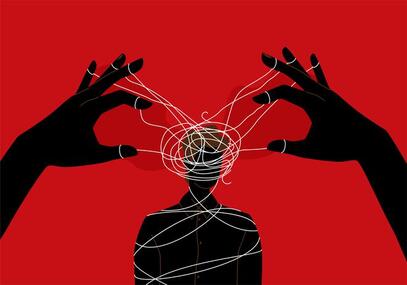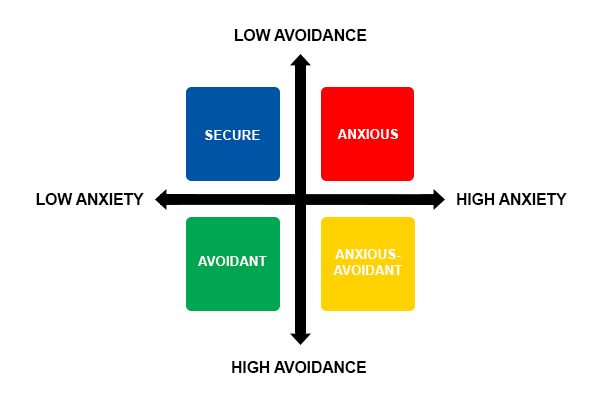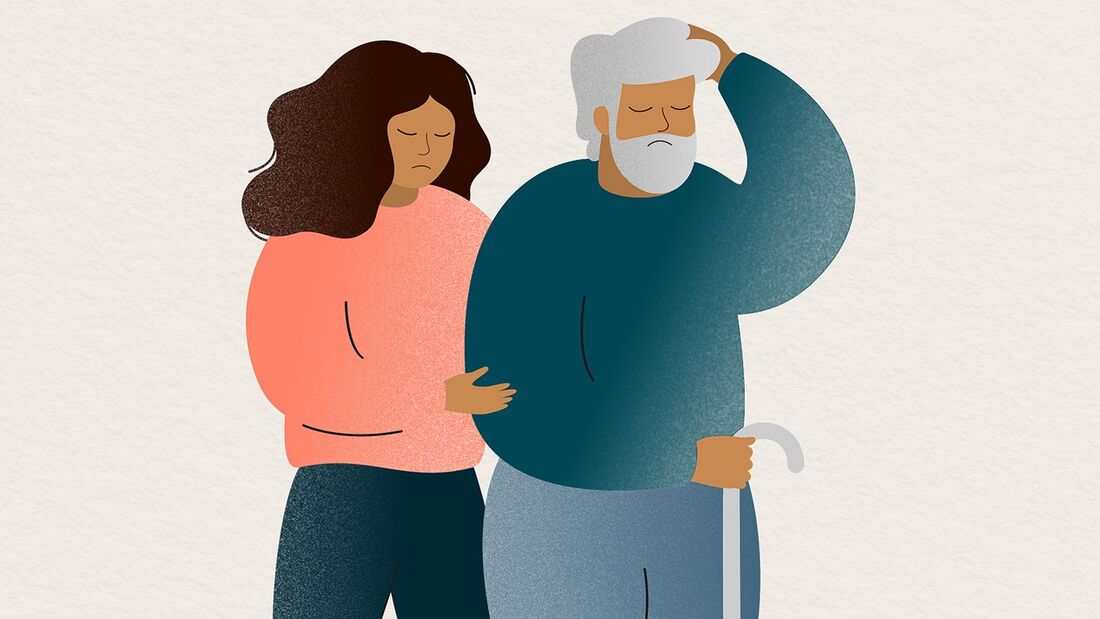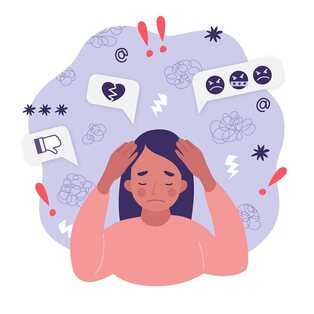|
Trauma can have a debilitating effect on a person's life. The raw emotions, intrusive thoughts, and maladaptive behaviors triggered by past experiences can create a prison of suffering. Fortunately, therapies like Eye Movement Desensitization and Reprocessing (EMDR) offer a powerful tool for breaking free.
Beyond Talk Therapy: A Different Approach Traditional talk therapy often delves into the "why" behind our issues, exploring the roots of our thoughts and behaviors. While valuable, it doesn't always address the raw emotional charge associated with trauma. EMDR takes a different path. We don't just talk about the event; we reprocess it, aiming to shift how the brain stores the memory. The Power of Bilateral Stimulation: The "eye movement" in EMDR isn't just a catchy name. It refers to various forms of bilateral stimulation, like side-to-side eye movements, hand taps, or auditory tones. While the exact mechanism remains under investigation, research suggests this stimulation activates the brain's natural processing and healing mechanisms. Unlocking the Vault: The first step is to create “grounding,” a safe space to explore the traumatic feelings. During EMDR sessions, you'll safely explore specific aspects of the traumatic memory, focusing on the most disturbing images, thoughts, and emotions. As you do, I'll guide you through the bilateral stimulation, creating a safe space for your brain to begin revisiting and reprocessing the experience. It's Not About Erasing Memories: It's important to clarify that EMDR doesn't erase memories. The events themselves remain, but their emotional sting is lessened. Imagine the memory like a locked file cabinet. EMDR helps reorganize that file, making it easier to access without being overwhelmed by the associated negativity. Transforming the Negative Narrative: As you reprocess the trauma, you'll also have the opportunity to develop a more empowering narrative about the experience. This could involve identifying positive self-beliefs, like "I am strong" or "I survived," that counter the negative self-talk often linked to trauma. Beyond Trauma: A Wider Scope: While EMDR was initially developed for trauma, its applications have expanded. It can be effective for phobias, anxiety, depression, and even grief. The core principle remains the same: addressing the underlying emotional charge associated with distressing experiences. Is EMDR for Everyone? Like any therapy, EMDR isn't a one-size-fits-all solution. It requires commitment and active participation. However, for many individuals struggling with the aftereffects of trauma, it can offer a beacon of hope and a path towards healing. If you're interested in exploring EMDR, speaking with a qualified therapist is the first step. Remember, you are not alone in your journey towards healing. Take The Next Step Take the next step in your recovery journey. Contact Scott Olds at (303) 817-8369 or email at [email protected] for a free phone or video evaluation. As a psychotherapist, I witness the crippling effects of anxiety firsthand. It manifests in countless ways, from social anxieties that keep people isolated to phobias that confine them, to generalized worries that cast a shadow over everyday life. While traditional talk therapy has proven effective, I've found a powerful ally in EMDR (Eye Movement Desensitization and Reprocessing) – a therapy that helps clients untangle the often-hidden roots of their anxiety.
Beyond Talk Therapy: Healing Beyond Words Unlike traditional therapy, where we delve into the details of the anxious thoughts and feelings, EMDR takes a different approach. First we create a safe space and focus on the present moment. Then we use bilateral stimulation (such as eye movements or rhythmic tapping) to activate the brain's natural processing system. This creates a safe space for clients to gently confront past experiences or negative beliefs that fuel their anxiety. Unlocking the Vault: Accessing and Reprocessing Painful Memories Imagine anxiety as a tangled knot. EMDR helps loosen that knot by accessing the underlying memories or beliefs that contribute to it. It's not about reliving trauma in graphic detail, but rather gently nudging the brain to reprocess these experiences in a healthier way. As clients revisit these memories with bilateral stimulation, they often report shifts in perspective, decreased emotional intensity, and a newfound sense of control. The Science Behind the Shifts: While the exact mechanism of EMDR remains under exploration, research suggests it impacts the brain's limbic system, which houses our emotional processing center. The bilateral stimulation is thought to activate the amygdala (responsible for fear) and the prefrontal cortex (responsible for logic and reason), facilitating communication and integration of past experiences. Not a Magic Wand, but a Powerful Tool: It's important to remember that EMDR is not a magic bullet. It requires active participation from the client and a trusting therapeutic relationship. However, when used appropriately, it can be a transformative tool for those struggling with anxiety. I've witnessed clients who were once consumed by anxiety begin to reclaim their lives, finding peace and empowerment they never thought possible. Is EMDR Right for You? If you're struggling with anxiety and are open to exploring new avenues for healing, consider talking to a therapist trained in EMDR. It's not a one-size-fits-all approach, but for many, it can be a powerful key to unlocking a life less tethered by anxiety. Remember, you deserve to live a life free from fear and worry. Take the first step towards emotional well-being today. Contact Scott today at (303) 817-8369 or email at [email protected] for a free phone or video call evaluation. Psychotherapy offers several advantages over medication for treating anxiety:
Scott F. Olds is a psychotherapist who is located in Arvada, Colorado. He offers a free 30-minute phone or video consultation. Appointments can be made by calling (303) 817-8369 or emailing [email protected]. Gaslighting is a form of psychological manipulation in which one person makes another person doubt their perceptions, experiences, memories, or understanding of events that happened. It is a subtle and insidious form of abuse that can have a devastating impact on the victim's mental and emotional health.
Gaslighting can occur in any type of relationship, but it is particularly common in romantic relationships. This is because romantic partners often have a high level of trust and intimacy, which makes them more vulnerable to manipulation. Gaslighters typically use a variety of tactics to achieve their goals, including:
If you are in a relationship with someone who is gaslighting you, it is important to seek help from a qualified psychotherapist. A therapist can help you to understand what is happening to you, and they can provide you with support and guidance as you work to recover from the effects of gaslighting. Here are some tips for coping with gaslighting in a relationship:
It is also important to remember that you are not alone. If gaslighting is a problem in your relationship, therapy can help. Contact Scott at (303) 817-8369 or email at [email protected] for a free phone or video evaluation. How the Relationship Style We Learned from Our Parents Influences Us as Adults in a Relationship9/3/2023
As children, we learn about relationships by watching our parents interact with each other. We see how they communicate, how they resolve conflict, and how they show love and affection. These observations become our template for how we expect relationships to work. If our parents had a healthy, loving relationship, we are more likely to have secure attachment styles as adults. This means that we feel confident in our ability to form close relationships and that we expect to be loved and supported by our partners. However, if our parents had an unhealthy or conflictual relationship, we are more likely to have insecure attachment styles. This means that we may have difficulty trusting others, may be afraid of abandonment, or may have a hard time expressing our emotions in relationships. Of course, our relationship style is not determined solely by our parents. Our own experiences and personality also play a role. However, our parents' relationship style can have a significant impact on how we approach our own relationships as adults. Generational Influence The generational influence on relationship styles is a complex topic. There are many factors that can contribute to how we learn about relationships from our parents, including their own attachment styles, their cultural background, and the historical context in which they grew up. For example, people who grew up in families where there was a lot of conflict may be more likely to have insecure attachment styles. This is because they may have learned that relationships are inherently unstable and that conflict is inevitable. On the other hand, people who grew up in families where there was a lot of love and support may be more likely to have secure attachment styles. This is because they may have learned that relationships are a source of comfort and security. It is also important to note that the generational influence on relationship styles can be passed down from generation to generation. This is because children learn about relationships from their parents, who learned about relationships from their parents, and so on. As a result, it is not uncommon for people to find themselves repeating the same relationship patterns that their parents did. This can be a challenge to break, but it is possible with awareness and effort. Here are some specific ways that the relationship style we learned from our parents can influence us in our adult relationships:
Remember, you are not doomed to repeat the relationship patterns you learned from your parents. With awareness and effort, you can create healthy, fulfilling relationships in your own life. Here are some additional tips for breaking the cycle of unhealthy relationship patterns:
If you need help with your relationship, contact Scott Olds at (303) 817-8369 or [email protected].
As a psychotherapist and in my personal life, I have seen firsthand the impact that shame can have on caregivers for the chronically ill. Shame can be a powerful emotion that can lead to feelings of isolation, inadequacy, and worthlessness. It can also make it difficult to ask for help or support.
There are a number of reasons why caregivers may feel shame. They may feel ashamed of the illness itself, or of the way it has changed their lives. They may feel ashamed of their own limitations, or of the things they have to do to care for their loved one. They may also feel ashamed of the financial or emotional burden that the illness has placed on their family. Shame can have a significant impact on a caregiver's mental and physical health. It can lead to anxiety, depression, stress, and burnout. It can also make it difficult to cope with the demands of caregiving. If you are a caregiver for a chronically ill loved one, it is important to remember that you are not alone. There are many other caregivers who are going through the same thing. You are not to blame for the illness, and you are not inadequate. You are doing the best you can in a difficult situation. If you are struggling with feelings of shame, there are things you can do to cope. First, it is important to talk to someone about how you are feeling. A therapist can help you to understand your shame and develop coping mechanisms. You can also find support groups for caregivers, where you can connect with others who understand what you are going through. It is also important to remember to take care of yourself. Make sure to get enough sleep, eat healthy foods, and exercise regularly. You should also make time for activities that you enjoy. Taking care of yourself will help you to be better able to cope with the demands of caregiving. If you are struggling with feelings of shame, please know that you are not alone. There is help available. Please reach out for support. Here are some additional resources for caregivers who are struggling with shame:
If you are struggling as a caregiver and need help, contact Scott at (303) 817-8369 or [email protected]. As a psychotherapist, I have seen firsthand the emotional and psychological toll that chronic illness can take on individuals and their families. The physical symptoms of chronic illness can be debilitating, but the emotional and psychological effects can be just as challenging.
Some of the common emotional and psychological challenges that people with chronic illness face include:
If you are struggling to cope with the emotional and psychological effects of chronic illness, please reach out for help. There is no shame in seeking help, and it can make a big difference in your quality of life. Tips for Coping with the Emotional and Psychological Toll of Chronic Illness
To find out more, schedule an appointment with Scott Olds at (303) 817-8369 or email me at [email protected]. As a psychotherapist, I often work with highly sensitive people (HSPs) who struggle with anxiety. HSPs are individuals who process information more deeply and intensely than the average person. This can make them more susceptible to anxiety, as they are more likely to be overwhelmed by sensory stimuli and emotional triggers.
There are a number of ways that a psychotherapist can help an HSP manage anxiety. Here are a few of the most common:
Here are some additional tips for HSPs who are struggling with anxiety:
If you are a highly sensitive person (HSP) in an abusive relationship, you may feel overwhelmed, exhausted, and even hopeless. You may be wondering if you are crazy or if you are just too sensitive.
The truth is, you are not crazy. You are simply a highly sensitive person who has gotten into a relationship with an abuser. Abuse can take many forms, including physical, emotional, verbal, and financial abuse. As an HSP, you are naturally empathic and caring. You are drawn to people who are in need, and you want to help them. This makes you a prime target for an abuser. Abusers are often very good at manipulating and controlling others, and they can easily take advantage of your sensitivity. If you are in an abusive relationship, you may be experiencing some of the following:
If you are ready to get out of your abusive relationship, there are a few things you can do:
If you are a highly sensitive person in an abusive relationship, please know that you are not alone. There is help available. Please reach out to Scott Olds, Psychotherapist, for support. Here are some additional resources that you may find helpful:
Highly sensitive people can feel stressed, anxious, or depressed when overwhelmed with sensory overload, with too much happening around them too quickly. While no single activity is a silver bullet to well-being for the highly sensitive, research shows that a combination of these low-intensity positive activities contributes to harmony and well-being.
Be gentle with yourself. Embrace sensitivity for the positive benefits and learn to manage the challenges. These 10 practices can help you regain a sense of balance and calm when you feel overstimulated and overwhelmed. If you think you may be highly sensitive and need additional help overcoming anger, stress, or depression, call Scott Olds, Psychotherapist at (303) 817-8369 or [email protected] for a free consultation. Scott is located in Arvada, Colorado. |
AuthorScott F. Olds, Psychotherapist Categories
All
Archives
February 2024
Call Scott at
|
Package Discount: Get a 4-session package for 10% off! Call for details.
I offer sessions in the office, in an open space (weather permitting), by phone, and by video sessions for your safety and convenience. Take a deep breath and give me a call at (303) 817-8369 or email me at [email protected].
Confidential: I am HIPAA compliant, so your privacy is protected.
Crisis Information: If you are in crisis, call Colorado Crisis and Support at 844-493-8255 or the national Suicide and Crisis Lifeline at 988 for 24/7 for help in an emergency. These lifelines provide free and confidential support for people in distress, prevention, and crisis resources for you or your loved ones.
(303) 817-8369
[email protected]
10960 W. 65th Way
Arvada, Colorado 80004
My office is in Arvada, Colorado.
Privacy Policy












